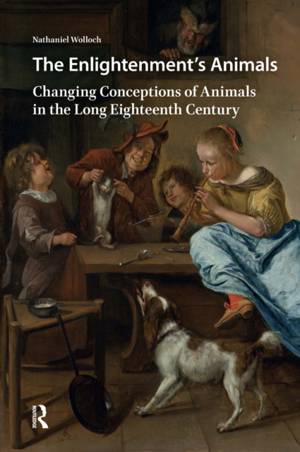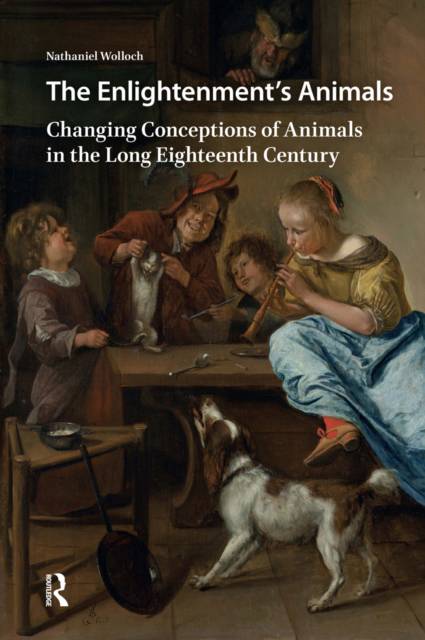
- Afhalen na 1 uur in een winkel met voorraad
- Gratis thuislevering in België vanaf € 30
- Ruim aanbod met 7 miljoen producten
- Afhalen na 1 uur in een winkel met voorraad
- Gratis thuislevering in België vanaf € 30
- Ruim aanbod met 7 miljoen producten
The Enlightenment's Animals
Changing Conceptions of Animals in the Long Eighteenth Century
Nathaniel Wolloch
Hardcover | Engels
€ 155,45
+ 310 punten
Omschrijving
In The Enlightenment's Animals Nathaniel Wolloch takes a broad view of changing conceptions of animals in European culture during the long eighteenth century. Combining discussions of intellectual history, the history of science, the history of historiography, the history of economic thought, and, not least, art history, this book describes how animals were discussed and conceived in different intellectual and artistic contexts underwent a dramatic shift during this period. While in the seventeenth century and the first half of the eighteenth century the main focus was on the sensory and cognitive characteristics of animals, during the late Enlightenment a new outlook emerged, emphasizing their conception as economic resources. Focusing particularly on seventeenth-century Dutch culture, and on the Scottish Enlightenment, Wolloch discusses developments in other countries as well, presenting a new look at a topic of increasing importance in modern scholarship.
Specificaties
Betrokkenen
- Auteur(s):
- Uitgeverij:
Inhoud
- Aantal bladzijden:
- 248
- Taal:
- Engels
Eigenschappen
- Productcode (EAN):
- 9789462987623
- Verschijningsdatum:
- 10/01/2019
- Uitvoering:
- Hardcover
- Formaat:
- Genaaid
- Afmetingen:
- 163 mm x 236 mm
- Gewicht:
- 476 g

Alleen bij Standaard Boekhandel
+ 310 punten op je klantenkaart van Standaard Boekhandel
Beoordelingen
We publiceren alleen reviews die voldoen aan de voorwaarden voor reviews. Bekijk onze voorwaarden voor reviews.










